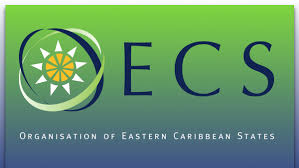ORGANISATION OF EASTERN CARIBBEAN STATES
INVITATION FOR EXPRESSIONS OF INTEREST
The Organisation of Eastern Caribbean States (OECS) Commission invites interested eligible Individual Consultants to submit Expressions of Interest for the provision of consultancy services for “Assessment of the Legal Representation for Children in the Caribbean”.
The Terms of Reference and Guidelines for the Submission of Expressions of Interest for this consultancy are provided below.
Terms of Reference
Assessment of the Legal Representation for Children in the Caribbean
- BACKGROUND
For rights to have meaning, effective remedies must be available to redress violations… So States need to give particular attention to ensuring that there are effective, child-sensitive procedures available to children and their representatives. These should include the provision of child-friendly information, advice, advocacy, including support for self-advocacy, and access to independent complaints procedures and to the courts with necessary legal and other assistance…
General Comment No. 5 (2003)
General measures of implementation of the UN Convention on the Rights of the Child
(arts. 4, 42 and 44, para. 6)
Whether children come into contact with the law as victims, witnesses, offenders or complainants, it is equally important that they are met with a system that understands and respects both their rights and their unique vulnerability. The idea of taking special care with children whose lives are impacted by the legal system is the foundation of justice system responsive to needs of a modern society, a movement that calls for a dramatic shift in the ways that national justice systems interact and respond to the needs of children.
In summary, when children come into contact with the law as offenders, international standards and obligations provide that i) Any child apprehended by the police and suspected of wrongdoing should be given an immediate opportunity to contact a parent, guardian or trusted person and provided with access to a lawyer at little or no cost to the child and his/her family; ii) Police Officers should explain to children why they have been apprehended in a way that they can understand, and should not question children about their potentially offending behaviour until a parent, guardian, trusted person or lawyer has arrived; iii) children should only be detained in exceptional circumstances and, where this is necessary, should never be detained alongside adults.
Child-friendly justice embraces the idea that courts can be a powerful tool to positively shape children’s lives and at the same time recognises the reality that contact with the legal system is all too often more a source of additional trauma than a remedy for children. Building on international children’s rights obligations, child-friendly justice introduces principles that empower children to enforce their rights and encourages government, court, and law enforcement officials to develop policies that address children’s precarious situation in the justice system.
Child-friendly justice requires an appreciation for the minimization of the challenges that children face at each step in their interface with the justice system, thus building confidence in the view of the justice system as a solution to children’s legal issues.
According to the United Nations Principles and Guidelines on Access to Legal Aid in Criminal Justice Systems, 2013, “legal aid is an essential element of a fair, humane and efficient criminal justice system that is based on the rule of law. Legal aid is a foundation for the enjoyment of other rights, including the right to a fair trial, as defined in article 11, paragraph 1, of the Universal Declaration of Human Rights, a precondition to exercising such rights and an important safeguard that ensures fundamental fairness and public trust in the criminal justice process”. Additionally, Principle 11. Legal aid in the best interests of the child indicates that in all legal aid decisions affecting children, the best interests of the child should be the primary consideration. Legal aid provided to children should be prioritized, in the best interests of the child, and be accessible, age‑appropriate, multidisciplinary, effective and responsive to the specific legal and social needs of children.
- OBJECTIVE OF THE ASSIGNMENT
The objective of this assignment is to assess the access to counsel and the quality of representation received by children in conflict with the law in the Eastern Caribbean and to evaluate how effectively attorneys in juvenile courts are fulfilling constitutional and statutory obligations to their clients.
- SCOPE OF THE ASSESSMENT
This assessment forms part of the strategic objectives in execution of the 2017-2021 Multi-Country Programme of Cooperation Agreement between the Governments of the Eastern Caribbean/UNICEF Office for the Eastern Caribbean Area, the OECS Commission being the executing agency is mandated to ensure the desired results for children, including their protection. This assessment of access to counsel and quality of representation for children in contact with the law in the Eastern Caribbean is part of a regional undertaking to review defence delivery systems for children and adolescents, and to evaluate how effectively attorneys in juvenile courts are fulfilling constitutional and statutory obligations to their clients. This study is designed to:
- Provide information on service delivery vis a vis international standards, the role of defence counsel in the juvenile justice systems in 9 OECS Member States[1] as well as Barbados, Trinidad and Tobago and the Turks and Caicos Islands,
- Identify structural or systemic barriers to more effective representation of youth,
- Identify and highlight promising practices within the national systems, and
- Make viable recommendations for ways in which to improve the delivery of defender services for youth in the justice system.
- COORDINATION AND SUPPORT
During the Assessment, the Consultant will work closely with the Social Development (SDU). The Consultant will be administratively managed and supported by the Head of the Social Development Unit and the Project Coordinator, JJRP. The SDU staff will be available as required for discussions and providing information.
- WORK METHODOLOGY AND TASKS
The Consultant will:
- Prepare and submit for review and approval by the SDU and project partner UNICEF, a template against which standard information on the bench marks of effective legal representation of youth will be collected and assessed.
- Prepare and submit for review and approval by the SDU, a work plan detailing all activities, methodological approaches to be undertaken and tools to be utilized as part of the assignment, and associated timelines.
- Undertake field visits within the study countries to collect and validate the required information, prepare field reports, consulting with national legal aid clinics, Courts, Bar Associations and detention centres, juveniles, child rights committees and child advocates etc.
- Prepare desk review of status of defence delivery for children in contact with the law in Guyana, Jamaica, Trinidad and the Bahamas to facilitate a full regional picture of the trends on this children’s right issue.
- Prepare and submit draft assessment reports to National Focal Point Ministries, Attorney General’s Chambers and Ministries of Justice and integrate feedback as required.
- Prepare and submit final country assessment reports to the SDU, with an executive summary that incorporates desk review findings.
- Prepare and submit a Powerpoint Presentation providing a summary analysis of cross-country findings.
- The scope and focus of the assessment will take into consideration international standards and obligations for managing children in conflict with the law as well as the Implementation Checklist for the administration of juvenile justice according to the Convention on the Rights of the Child to be found in the Implementation Handbook for the Convention on the Rights of the Child: Fully Revised Third Edition | UNICEF Publications | UNICEF
- The assessment will provide baseline data for the following the Governments of the Eastern Caribbean Area/UNICEF Programme of Cooperation 2017-2021, especially the indicator “Justice system complies with the minimum standards laid down in the Beijing Rules of Justice”.
- EXPECTED TIMEFRAME and DELIVERABLES
The consultancy services are required for an estimated total of fifty (50) working days over a four month period.
- Draft template and work plan within two weeks of signing the contract. (Timeframes for submission of other deliverables will be agreed with the consultant and should be in line with the timeframe in 6 above).
- Four (4) of twelve (12) draft country assessment reports
- Eight (8) of twelve (12) draft country assessment reports
- Twelve (12) draft country assessment reports
- Twelve (12) final country assessment reports
- Power Point Presentation presenting summary analysis of cross-country findings
- QUALIFICATIONS AND EXPERIENCE
The competencies required from the Consultant or members of the Consulting Firm are:
- An advanced University degree in law or related social science field
- At least five years working experience and knowledge of the legal system in the region
- Experience conducting assessments on systems approaches in the area of juvenile justice
- Demonstrated technical expertise in juvenile justice and child protection
- Proven experience conducting at least one successful similar activity in the OECS region
- Good communication and presentation skills/ability to express concisely and clearly ideas and concepts in written and oral form
- Ability to keep with strict deadlines yet operate in national environments of uncertainty and ambiguity
- OVERSIGHT OF OECS COMMISSION
The OECS Commission will:
- Review and provide feedback on consultancy deliverables;
- Provide the consultant with all necessary logistical support to ensure that the consultant(s) undertake the consultancy with reasonable efficiency;
- Assign point person(s) to support the consultant during the process;
- Meet all the agreed cost related to the consultancy;
- Facilitate the access to relevant documents and make all necessary contacts that may be needed;
- Guide the consultancy as needed and necessary.
- PAYMENT SCHEDULE
This assignment will commence in February 2018 and be completed no later than May 30th 2018. Payments will be made on the following basis:
- 10% on submission and acceptance of Draft template and work plan
- 25% on submission and acceptance of 4/12 draft country reports
- 25% on submission and acceptance of 8/12 remaining draft country reports
- 40% on submission and acceptance of final country reports and Power Point Presentation presenting cross country summary of key findings
- OECS RECOURSE
The OECS reserves the right to withhold all or a portion of payment if performance is unsatisfactory, if work outputs are incomplete, not delivered or for failure to meet deadlines. Performance indicators against which the satisfactory conclusion of this contract will be assessed include: quality of submission, timeliness, and responsiveness to OECS and counterpart feedback.
- PROPERTY RIGHTS
The OECS and UNICEF shall hold all property rights, such as copyright, patents and registered trademarks, on matter directly related to, or derived from, the work carried out through this contract with the OECS and the sponsoring agency UNICEF
[1] Antigua and Barbuda, Anguilla, Dominica, Grenada, Montserrat, St. Lucia, St. Kitts and Nevis, St. Vincent and the Grenadines, British Virgin Islands



